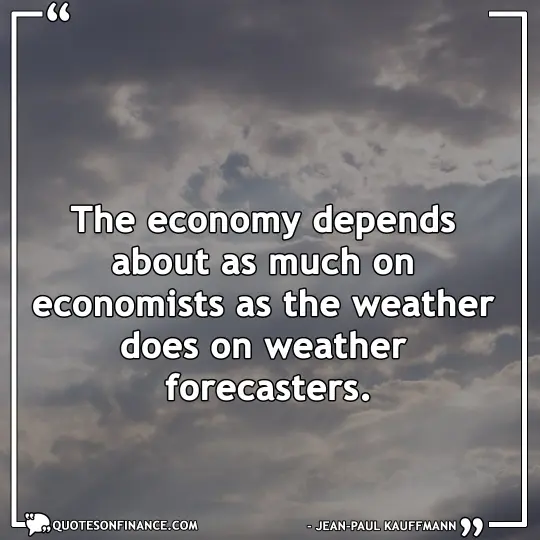
The economy depends about as much on economists as the weather does on weather forecasters.
Our take on this quote:
🌦️ Forecasting Follies 🌦️
Just as the weather can surprise us despite predictions, the economy often defies expert forecasts. Embrace the unpredictability! 📉🌤️
Jean-Paul Kauffmann's quote humorously underscores the limitations of economic forecasting. Just as weather forecasters can't always predict the weather with perfect accuracy, economists can't always predict economic trends and outcomes. Both fields involve a high degree of unpredictability, reminding us to remain flexible and prepared for the unexpected.